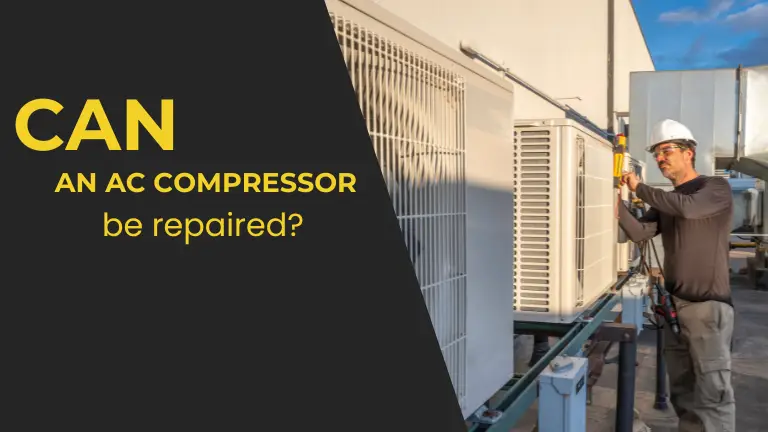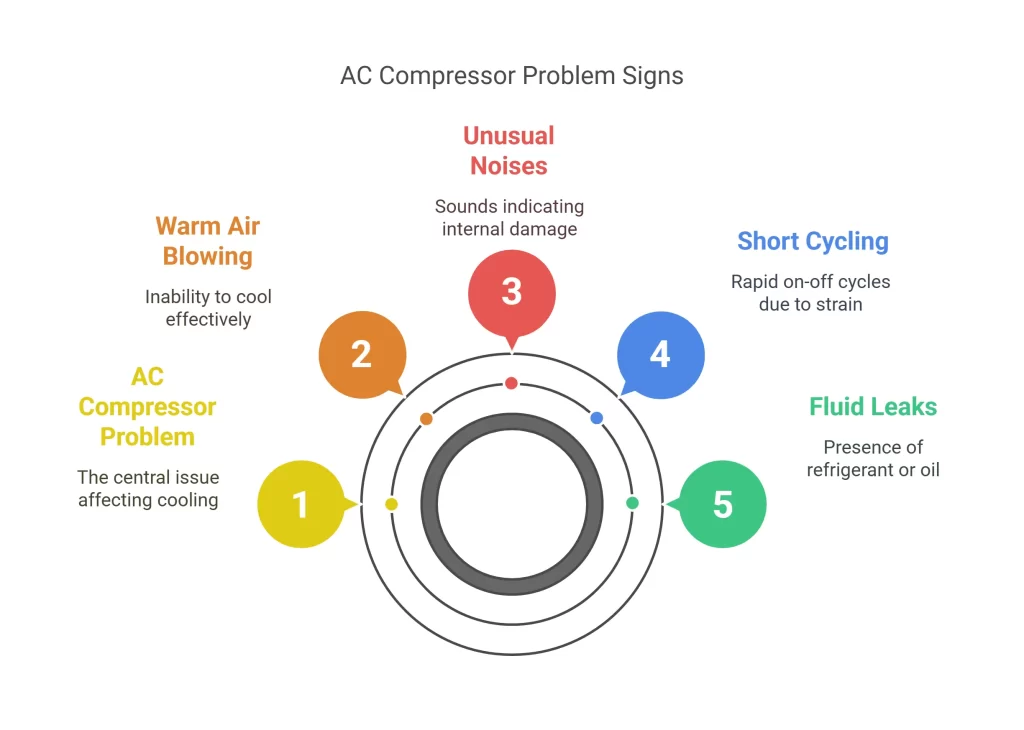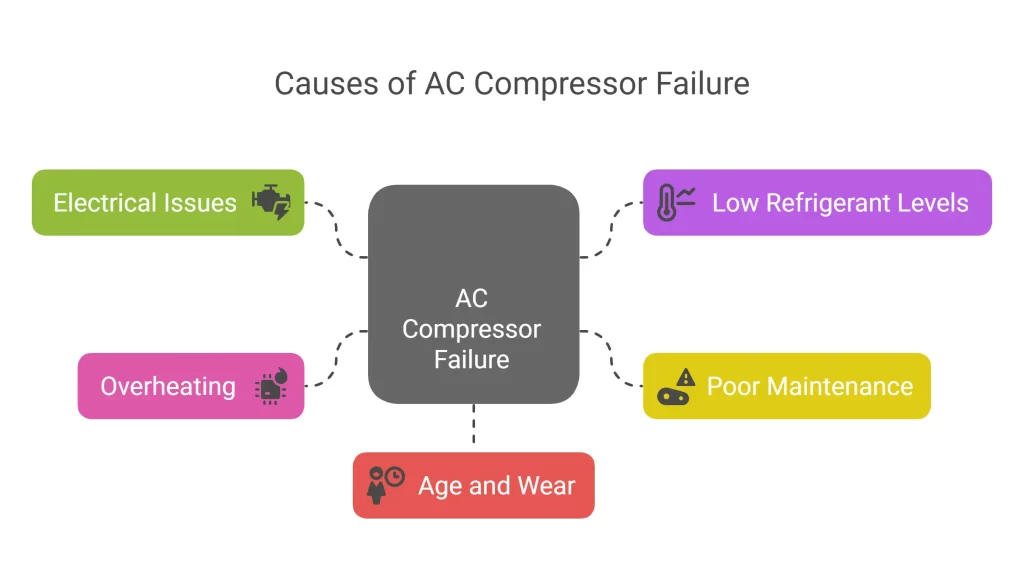
On a hot summer day, your AC compressor stops, leaving you sweating. We often get calls from homeowners asking, “Can my AC compressor be fixed?” As experienced HVAC technicians, we know the compressor is the heart of your AC, pumping coolant to keep you cool.
You’re likely wondering if it can be repaired or if you need a new one. In this blog, I’ll guide you through spotting compressor issues, repair options, common problems, and when to replace it, based on our expertise.
Yes, an AC compressor can be repaired. However, it often depends on the problem, the age of the unit, and the cost of repair. In many cases, especially with older systems, replacing the compressor or the entire AC unit is more practical and cost-effective.
Fact:
Repairs often require expert tools and technical know-how. DIY repairs are not recommended and can make things worse or void your warranty.
Now that you know an AC compressor can be repaired, you might be wondering how to tell if your compressor is actually the issue. Spotting the problem early can help you avoid bigger ac repair problems and bills or a full system breakdown. Here are key signs to watch for:
If you notice these symptoms, don’t wait, contact a professional AC repair expert. They’ll use diagnostic tools to confirm whether the compressor is the problem or if another part is causing trouble. Acting fast can save your AC from further damage.

Once you’ve spotted a problem, the next step is figuring out whether it’s worth repairing. Here are the main things that determine if a compressor can be repaired:
1. Age of the AC Unit
2. Extent of the Damage
3. Type of Refrigerant
4. Warranty Coverage
5. Condition of Other AC Parts
Once you’ve confirmed a compressor problem and repair seems possible, what fixes can you expect? Compressor repairs are complex and require professional expertise. Below are the most common types of repairs experts perform:
These repairs require specialized tools and knowledge, so avoid DIY attempts, which can worsen the problem or void warranties. A qualified technician will ensure the repair is done safely and effectively, extending your AC’s life where possible.
In the UAE, the cost of repairing or replacing a home AC compressor typically ranges from AED 100 to AED 200 for split or window units and AED 1,500 to AED 3,500 for central AC systems, depending on the unit type, compressor brand, size, and labor charges (AED 50–150/hour).
An AC compressor is often beyond repair if it suffers catastrophic internal damage such as seized components or broken pistons, relies on obsolete parts, or uses outdated refrigerants such as R22. Repairs also become impractical when the entire system shows signs of degradation or when costs approach 50 to 70 percent of a new unit’s price. In such cases, replacing the compressor or the whole system can be more cost-effective and reliable. A qualified HVAC technician can assess your system to recommend the best long-term solution.
Understanding when an AC compressor is beyond repair leads us to the root of the problem: what causes these failures in the first place? Knowing the common culprits can help you prevent future issues. Here are the primary reasons an AC compressor might fail, informed by expert insights:
Regular AC maintenance and prompt repairs can mitigate these issues.

An AC compressor failure can leave you hot and frustrated, but understanding your options makes all the difference. While repairs are possible for minor issues, they’re often costly and require expert skills, especially for older units. Always consult a trusted HVAC professional to diagnose issues and choose the most cost-effective solution, ensuring your home stays cool and comfortable for years to come.
Mon - Sun 08:00am - 05:00pm
Mob: 050 359 0810
Unit 13 Sheikh Zayed Road - Al Quoz 1 - Dubai